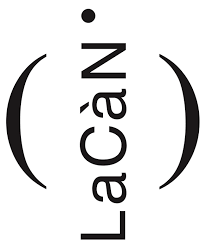Plaza de posdoc en la UPC
Postdoc/Scientific programming engineer in high- performance computational mechanics
The group on “Mechanics of soft and living interfaces” (https://www.lacan.upc.edu/mechanics-of-soft-and-living-interfaces/) lead by Professor Marino Arroyo (https://www.lacan.upc.edu/arroyo/) located at the UPC in Barcelona and affiliated to CIMNE and IBEC is seeking a highly skilled postdoctoral researcher or scientific programming engineer to join a software development team and contribute to our in-house C++ high-performance, finite element library called hiperlife. Hiperlife focuses on efficiently and flexibly solving coupled partial differential equations (PDE) on time-evolving surfaces, possibly coupled to bulk PDE, to understand a variety of highly nonlinear multiphysics problems arising from the analysis of thin shell structures, cellular meta-materials, shape-morphing interfaces, and cell and tissue mechanobiology. Our library is based on the Trilinos project, and aims at making advanced mathematical models, highly sophisticated computational technologies, and high-performance computing easily accessible to a wide range of scientists and engineers interested in interfacial problems.
The successful candidate will join a dynamical and interdisciplinary team with a world- class network of collaborators towards:
- Creating the next-generation open-source software for interfacial multiphysics problems (focusing on mechanobiology) across platforms, from desktops to supercomputers
- Develop advanced numerical methods and algorithms required to address cutting-edge scientific multidisciplinary problems
- Deploy state-of-the-art, open-source software that will be used on a daily basis by a wide range of researchers around the world to advance science.Required qualifications
- Strong skills in C++ programming and in unix-like operating systems
- Ph.D. in computer science, computational mathematics, computational physics, or computational engineering. Applicants with a pertinent MS and sufficientexperience will be considered.
- Experience and understanding of numerical methods for partial differentialequations.
- Demonstrated software development expertise (e.g., active github account,successful projects, or documented open-source contribution)
- Enthusiasm for programming, learning, problem solving, and tracking otherlibrary trends
- Exceptional collaboration and communication skills, in particular in English
- Understanding of computer systems, programming language constructs, and design patterns
Preferred qualifications
- Familiarity with high-quality software practices (test-driven development, documentation, software review processes, and cross-platform support).
- Experience with linear algebra libraries (Trilinos/PETSc)
- Experience with large-project build systems (e.g. CMake)
- Familiarity with revision control systems (e.g. git)
- Experience with MPI or multi-threaded programming
- Understanding of the finite element methodCandidates lacking some of the required qualifications but with a strong motivation to expand their expertise will be considered.You will have access to state-of-the-art computing facilities, a generous travel allowance for conferences and specialized training, and will be given the freedom to develop your own ideas and collaborate within the group and with other groups.Besides Skype interviews, it is possible to arrange on-site visits to the lab and the campus in Barcelona. The starting date is flexible during the summer/autumn of 2022. We offer initially a one-year contract, with the possibility of extending it based on the candidate’s performance.Interested applicants are encouraged to send as soon as possible a CV with a list of at up to 3 references and a very concise statement describing your past research/technical experience and your interests. This and specific inquiries should be addressed to Marino Arroyo () and Pablo Sáez () with “Postdoc/Scientific programming engineer-2022” in the subject line.Located in the city of Barcelona, the Universitat Politècnica de Catalunya -BarcelonaTech (UPC) is one of the largest technical universities of southern EU, with over 30,000 students spanning all levels from undergraduate to PhD, and employing over 2,500 faculty. Within UPC, the LaCàN research center develops new mathematical and computational models to enable quantitative and predictive science and engineering, specifically in the field of cell and tissue mechanobiology.




